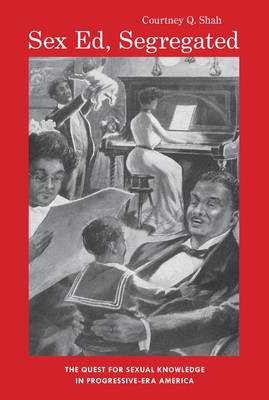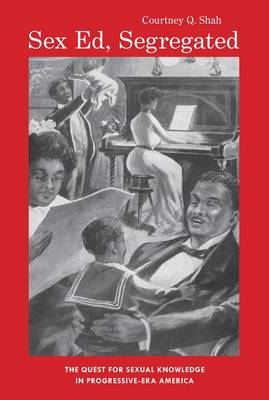
- Afhalen na 1 uur in een winkel met voorraad
- Gratis thuislevering in België vanaf € 30
- Ruim aanbod met 7 miljoen producten
- Afhalen na 1 uur in een winkel met voorraad
- Gratis thuislevering in België vanaf € 30
- Ruim aanbod met 7 miljoen producten
Zoeken
€ 177,45
+ 354 punten
Omschrijving
Against the backdrop of the Progressive Era, World War I, and the 1920s, sex education burgeoned in the United States through institutions like the YMCA, the popular press, girls' schools, and the US military. As access to sexual knowledge increased, reformers debated what the messages of a sex-education curriculum should be and, perhaps more important, who would receive those messages. Courtney Shah's study chronicles this debate, showing that sex education then, just as in our own era, had as much to do with politics and morals as it did with biology and medicine. Examining how different population groups in the United States were given contrasting types of sex education, Shah demonstrates that such education was used as a tool to reinforce or challenge racial segregation, women's rights, religious diversity, and class identity. Courtney Shah is an instructor of history at Lower Columbia College in Longview, Washington.
Specificaties
Betrokkenen
- Auteur(s):
- Uitgeverij:
Inhoud
- Aantal bladzijden:
- 228
- Taal:
- Engels
- Reeks:
- Reeksnummer:
- nr. 6
Eigenschappen
- Productcode (EAN):
- 9781580465359
- Verschijningsdatum:
- 15/08/2015
- Uitvoering:
- Hardcover
- Formaat:
- Genaaid
- Afmetingen:
- 150 mm x 231 mm
- Gewicht:
- 544 g

Alleen bij Standaard Boekhandel
+ 354 punten op je klantenkaart van Standaard Boekhandel
Beoordelingen
We publiceren alleen reviews die voldoen aan de voorwaarden voor reviews. Bekijk onze voorwaarden voor reviews.








